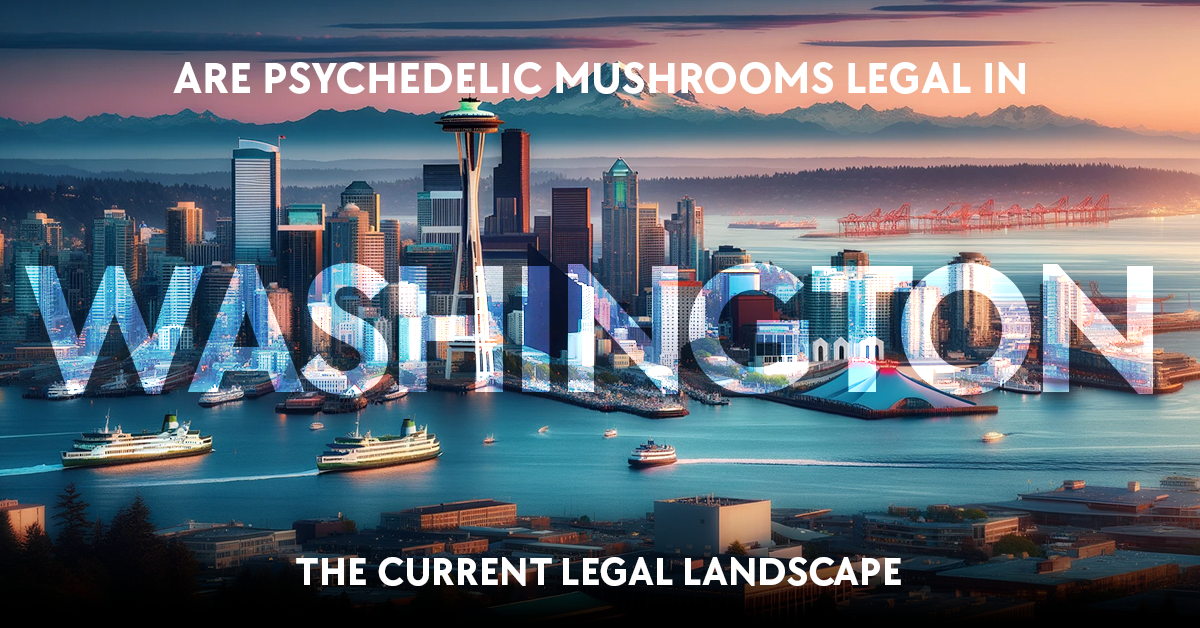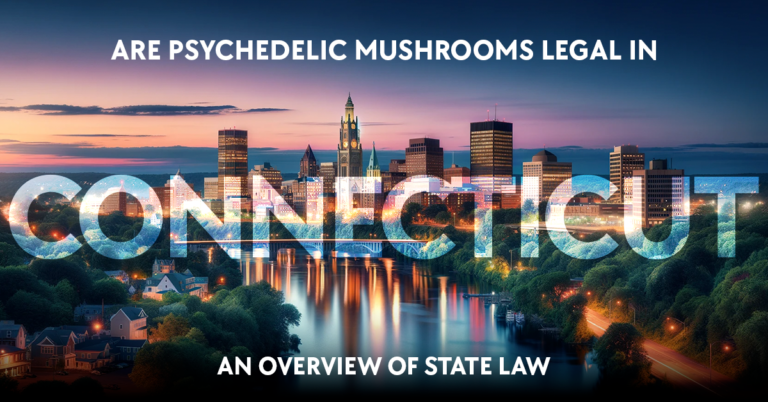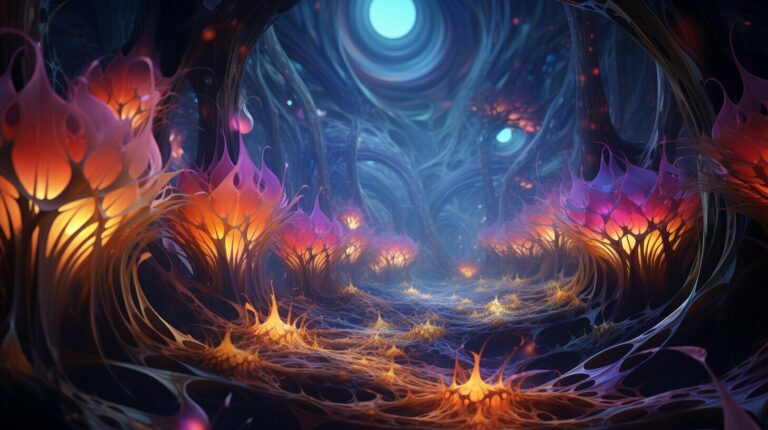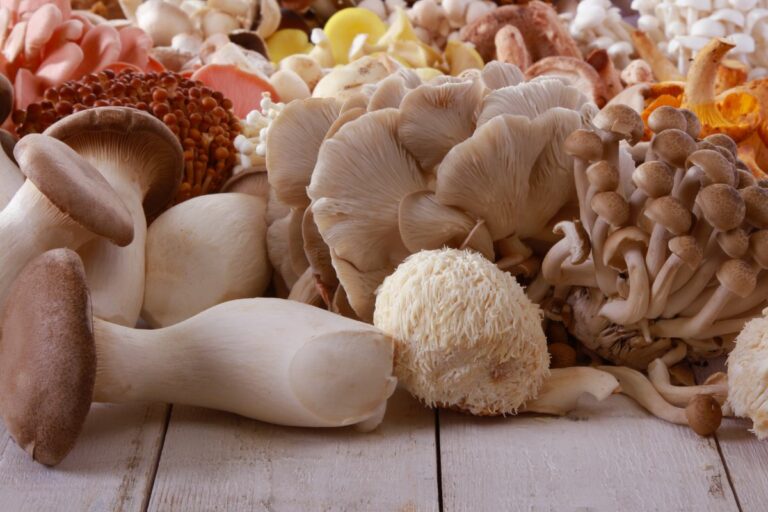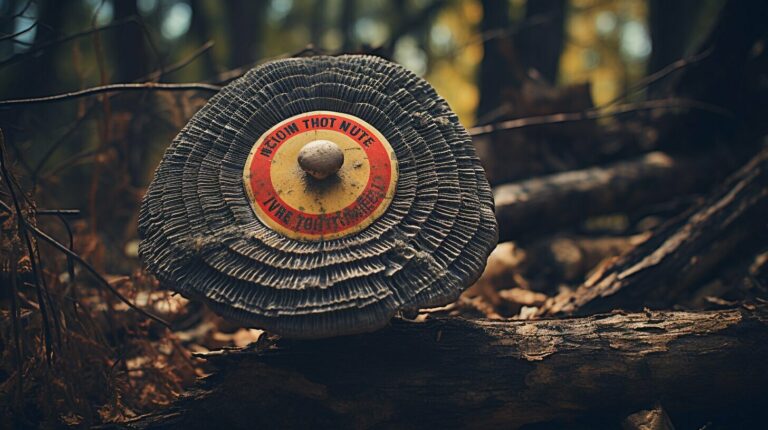As you dive into the topic of psychedelic mushrooms in Washington, you might wonder about their legal status. Historically, alongside other substances classified as psychedelics, psilocybin mushrooms have been illegal under federal law. However, recent years have seen a shift towards reevaluating the legal stance on psychedelic substances due to their potential therapeutic benefits for conditions such as depression and anxiety.

In Washington, the conversation around psychedelic mushrooms is evolving. Despite their federal classification, there has been movement at state and local levels. For example, prosecutors in certain counties have deprioritized psilocybin-related offenses, reflecting a growing recognition of the substance’s possible medical and psychiatric applications. This nuanced legal landscape means that, while psychedelic mushrooms are not broadly legalized in Washington, the winds of change are apparent as attitudes and laws are reconsidered.
Keep in mind that the current legal framework for psychedelic mushrooms is complex and can vary significantly across different jurisdictions. When considering their use, whether for medicinal purposes or otherwise, it’s important to stay informed of the most recent legislation and legal discourse, which can evolve rapidly in response to new research and public opinion.
Legal Status of Psychedelic Mushrooms in Washington
Table of Contents
https://www.youtube.com/watch?v=W20lAGI0kug&embed=true
In Washington, the conversation surrounding psychedelic mushrooms is evolving, with recent legislative efforts seeking to change their legal status. Your understanding of the latest developments is crucial.
Current State Legislation
You should be aware that the Washington State Legislature has been considering bills related to the decriminalization of psilocybin, the psychoactive compound found in psychedelic mushrooms. Specifically, SB 5660, titled the Washington Psilocybin Wellness and Opportunity Act, proposes a new approach to psilocybin. If passed, it would establish regulated psilocybin services for adults 21 and older.
Currently, at the federal level, the Drug Enforcement Administration classifies psilocybin as a Schedule I controlled substance. This classification means that psilocybin is considered to have a high potential for abuse and no accepted medical use. Therefore, despite any state legislative changes, federal law still prohibits psilocybin.
Washington’s legislative actions reflect a broader trend towards the legalization of psychedelic drugs that’s been developing across several states. However, unless the federal stance changes, there will remain a discrepancy between state and federal regulations regarding psilocybin.
History of Psychedelics Regulation
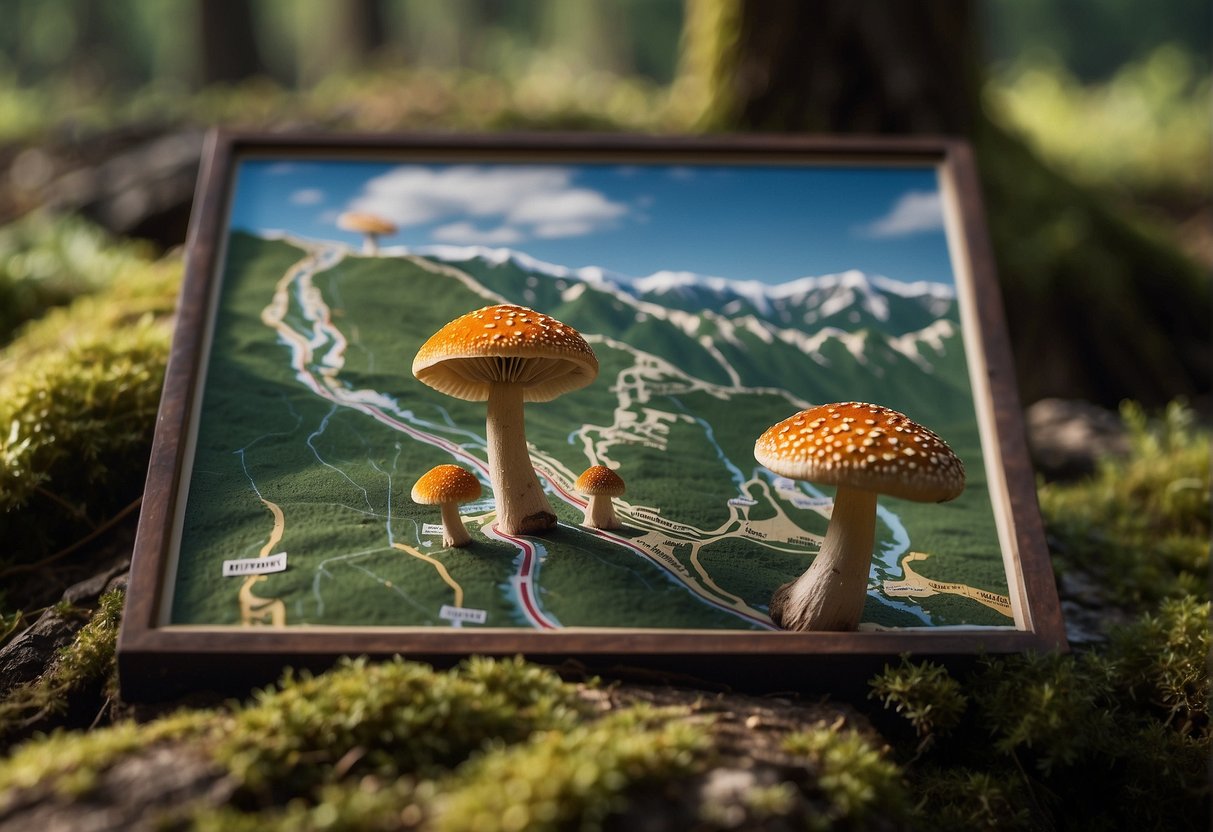
As you explore the journey of psychedelics through the legal system, you’ll notice shifts from stringent federal oversight to a gradual, city-led relaxation of regulations.
Federal and State Perspectives
The legal narrative of psychedelics in the United States has been significantly influenced by the War on Drugs. Initiatives categorized psychedelics as Schedule I substances, reflecting a stance that these substances have a high potential for abuse and no accepted medical use. This federal classification, however, has not been immutable. Individual states and cities have begun to challenge this perspective—first with medical cannabis and now, increasingly, with psychedelics.
Washington’s Approach
Washington has seen proposed state legislation that reflects a transformation in views toward psychedelics. For instance, State Senator Jesse Salomon introduced a bill aiming to decriminalize personal use. At city-level, places like Denver, Santa Cruz, Oakland, and Ann Arbor have already set precedents by decriminalizing or deprioritizing enforcement against certain natural psychedelics, hinting at potential changes in Washington’s own policies in response to this emerging trend.
Medical Research and Therapeutic Use

Your interest in the intersection of psychedelic mushrooms and their legality in Washington draws attention to ongoing medical research and therapeutic applications. As you explore this topic, it is important to recognize the role of clinical trials and research institutions in shaping the understanding and regulatory environment of substances like psilocybin, especially in their potential to treat various mental health conditions.
Current Clinical Trials
In Washington, clinical trials involving psychedelic mushrooms mainly focus on the active ingredient psilocybin and its application in treating conditions such as depression, anxiety, PTSD, and addiction. Research has been pivotal in potentially redefining these substances as therapeutic tools rather than just recreational drugs. Ongoing trials are monitored by regulatory bodies like the Food and Drug Administration (FDA) to ensure they meet safety and efficacy standards. The potential benefits of psilocybin, particularly in therapy-resistant cases of depression and anxiety, are a significant area of study.
- Depression: Studies examine psilocybin’s impact on treatment-resistant depression, aiming to understand its mechanism of action.
- Anxiety and PTSD: Research includes investigating psilocybin for anxiety, especially related to life-threatening illnesses, and its role in ameliorating trauma.
- Addiction: Investigations into using psilocybin therapy to combat addiction showcase promising avenues for treatment.
- Cluster Headaches: The analgesic properties of psilocybin for cluster headaches are also under scrutiny.
Universities and Research Facilities
The University of Washington and various research facilities statewide play a critical role in the exploration of psychedelic drugs for therapeutic use. Contributing to the body of evidence required for potential changes in legal status, these institutions provide scientific insight into the safety and effectiveness of treatments.
- University of Washington: A leader in research, contributing to our understanding of psychedelics in mental health treatment.
- Psilocybin Advisory Board: Collaborates with experts to guide responsible research and therapeutic uses of psychedelic mushrooms.
Engaging in these scientific endeavors, Washington is at the forefront of exploring psychedelic mushrooms as a potential treatment for mental health issues. The** outcomes of these trials and studies influence regulatory decisions** and the potential development of new therapeutic protocols using psychedelic drugs.
Social and Cultural Impact
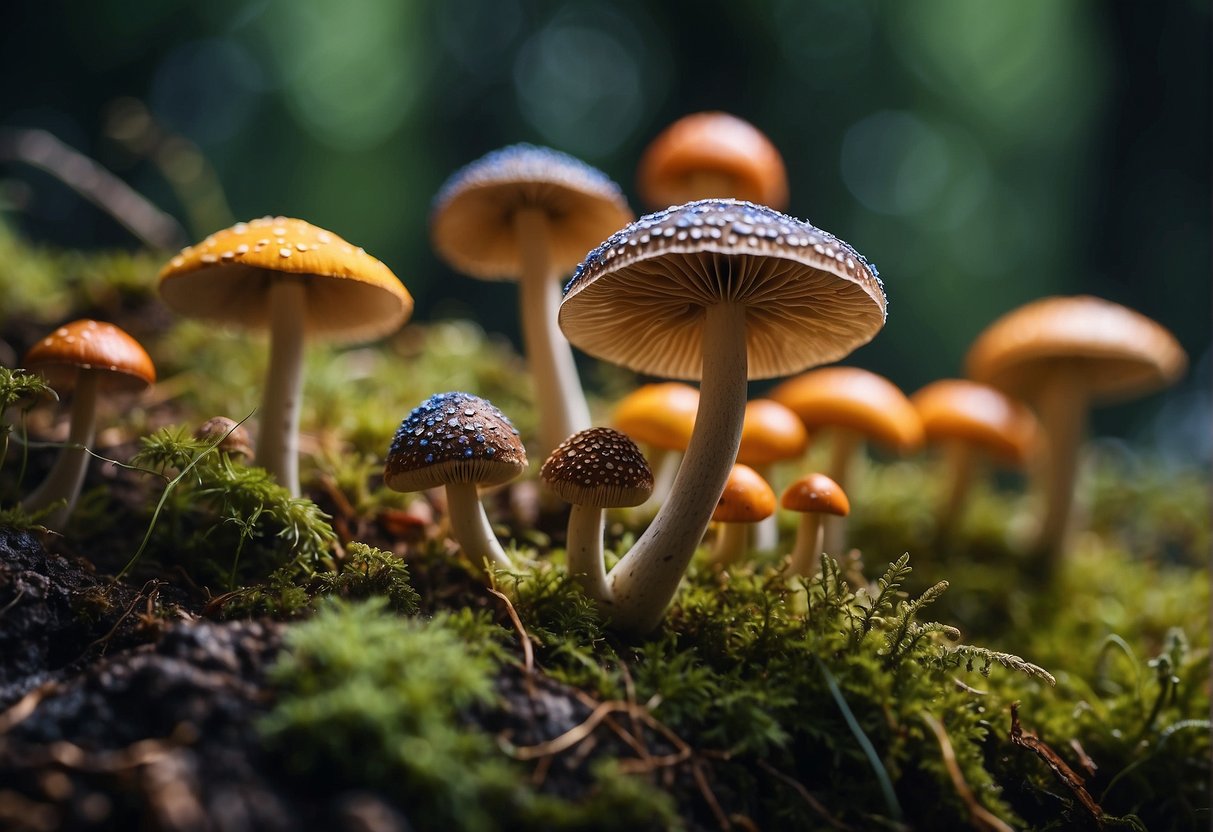
The legal status of psychedelic mushrooms in Washington has significant ramifications on public perception and community movements. You’ll notice these effects in discussions about nature, creativity, and traditional shamanic practices.
Public Perception
You are witnessing a shift in public perception toward psilocybin-containing mushrooms, commonly known as magic mushrooms. Research on psychedelics has contributed to a more nuanced understanding of their potential therapeutic uses. In Washington, species like Psilocybe azurescens have been decriminalized, influencing public opinion and increasing curiosity about their natural properties and impact on creativity.
Community Movements
Community movements in Washington have been catalytic in changing the legal landscape for shrooms. Grassroots organizations and advocates emphasize the historical use by shamans and the potential for a symbiotic relationship with nature, spotlighting the mushrooms’ cultural significance. Your participation in these communities might involve education, advocacy, or policy initiatives seeking to align local laws with emerging scientific evidence and cultural acceptance.
Comparative Analysis
In the landscape of psychedelic law reform, you’ll notice significant variations across regions and substances. Here’s a deep dive into how Washington compares to other areas, along with juxtaposing different psychedelics.
Other States and Cities
Washington State’s approach to psychedelic mushrooms is not in isolation; other jurisdictions have made notable advances. In Denver, psychedelic mushrooms received decriminalization status, indicating personal use and possession are the city’s lowest law enforcement priorities. Oakland and Ann Arbor have followed suit with similar decrees. Seattle, Washington, has also decriminalized the use of these substances.
When you look towards Oregon, the state stands apart with Measure 109, which has legalized psychedelic mushrooms for therapeutic use under regulated conditions—a significant step beyond decriminalization. This is a contrast to Washington’s current status where such use is still not approved.
Different Substances Compared
Beyond mushrooms, the legal landscape for psychedelics encompasses several other substances:
-
LSD: Similar to psychedelic mushrooms, LSD remains illegal under federal law, and there hasn’t been much movement on the state level for reform.
-
MDMA/Ecstasy: Currently undergoing clinical trials, and under consideration for medicinal use, especially for PTSD treatment, but remains illegal for recreational use.
-
Cannabis: Broadly legalized for recreational and medical use in Washington and several other states, it represents the most widespread acceptance of a substance that was once fiercely prohibited.
-
Ketamine: Though not a traditional psychedelic, ketamine is legally used in a medical setting, including in Washington, for its anesthetic properties and, more recently, for treating certain mental health conditions.
Each substance is subject to its own legal disposition, and your understanding of the legal status should reflect this specificity. For instance, while cannabis has made strides toward legalization in numerous states, other psychedelics, including psychedelic mushrooms, are cautiously stepping into decriminalization and therapeutic usage.
Legalization Efforts and Advocacy
Your understanding of the legal status of psychedelic mushrooms, particularly in Washington, will be shaped by recent political initiatives and the actions of advocacy groups.
Political Initiatives
In Washington, legalization efforts have taken the form of ballot initiatives, which are a direct way for voters to shape state law. For example, these initiatives may propose to decriminalize or even legalize psychedelic substances for medical or personal use. A noteworthy organization in this realm is the Psychedelic Medicine Alliance of Washington, which strives to educate the public and policymakers on the therapeutic benefits of psychedelics.
Advocacy Groups
A number of advocacy groups have emerged to support the reform of psychedelic substance laws. These groups often collaborate with law firms and institutions like the City University of Seattle to advance their cause. Financial support from entities such as the Ballmer Group also plays a crucial role in driving the advocacy efforts forward by funding studies or backing political action committees dedicated to these regulatory changes.
Regulatory Framework and Implementation
In Washington, you’ll find that the legal landscape surrounding psychedelic mushrooms is influenced by a progressive approach to drug policy, with specific bills and acts fostering a structured regulatory framework.
State Bills and Acts
State legislation, particularly Senate Bill (SB) 5660, has played a crucial role in shaping the policies around psychedelic drugs. SB 5660 aims to establish a comprehensive system for the licensing, sale, and administration of plant-based psychedelics. The legislation outlines the structure for an advisory board and sets provisions for endorsement from healthcare workers. By engaging with these acts, Washington sets a precedent for the regulated use of substances which the Seattle City Council and other entities can look to during implementation.
Health Department’s Role
The Department of Health (DOH) is integral in the implementation of regulatory frameworks, ensuring that practice aligns with safety and ethical standards. The DOH, in collaboration with the Health Care Authority (HCA), is responsible for the endorsement and oversight of health care workers who can administer psychedelic drugs. Their role includes developing licensing requirements, monitoring adherence to regulations, and contributing to the safe use of these substances within the legal parameters set by the state.
Future of Psychedelics in Mental Health
As you explore the evolving landscape of mental health treatment, the integration of psychedelic drugs, including psilocybin from mushrooms, stands out as a promising avenue. This potential shift in health care could be particularly impactful for individuals struggling with mental health conditions.
Potential for Expansion in Treatment
Psychedelics like psilocybin are being studied for their therapeutic benefits in treating a range of mental illnesses. Research suggests that psilocybin, when administered in a clinical setting, has the potential to alleviate symptoms of depression, anxiety, and substance use disorder. This could revolutionize formal treatment protocols, bringing hope to those who have been resistant to other forms of therapy. As such, the medical community looks to include these substances within the realm of recognized treatments, considering their use under the guidance of the health care authority.
Challenges and Considerations
Despite showing promise, the use of psychedelics in mental health faces numerous challenges. Decriminalizing mushrooms to allow for medicinal use is a complex legal matter, requiring a careful evaluation of the risks and benefits. It is critical to distinguish between controlled, therapeutic use and recreational misuse, especially since psychedelics can be contraindicated in conditions like schizophrenia. There’s a concerted effort to ensure that health care workers, including those caring for veterans experiencing PTSD or burnout, receive support while navigating these new territories. Change may come, but must be carefully managed to protect your health and ensure the efficacy and safety of these potential treatments.
Personal Experiences and Reports
In Washington, personal experiences with psychedelic mushrooms, often referred to as ‘magic mushrooms’, vary widely. Reports range from therapeutic benefits in mental health to the potential for challenging or what some describe as ‘bad trips’.
Anecdotal Evidence
Therapeutic Use: Many users report therapeutic benefits from psychedelic mushrooms, claiming improvements in conditions like depression and post-traumatic stress disorder (PTSD). You may find that individuals who seek mushrooms for these purposes do so with the hope of experiencing profound introspection and emotional relief.
Experiences: The range of experiences is vast; some individuals describe their use of psychedelics as transformative, providing a sense of mental clarity or a profound connection to a deeper sense of self.
Safety and Risks
Bad Trips: While some users report positive experiences, there is also the risk of experiencing a ‘bad trip’, which can include intense anxiety, fear, and disturbing thought patterns. Such experiences emphasize the need for safe and responsible use, particularly considering the unpredictable nature of these substances.
Behavioral Health: From a behavioral health perspective, the legality of mushrooms does not negate their risks. Ensuring safety often means being in a supportive environment, which can mitigate negative reactions and provide aid if your experience becomes challenging.
Contextual Note: While personal experiences with psychedelic mushrooms can be profound, they remain a subject of legal regulation and clinical study. Remember to consider the legality and potential risks before seeking such experiences.
Frequently Asked Questions
In Washington State, the laws surrounding psilocybin, the psychoactive component of psychedelic mushrooms, are evolving. It’s crucial to stay informed about the current legislation and any potential changes that could affect legality and decriminalization efforts.
What is the status of psilocybin mushroom decriminalization in Washington State?
As of the current date, psilocybin mushrooms remain illegal under Washington State law. They are considered a Schedule I controlled substance, which indicates they are not legalized for medical or recreational use at the state level.
Can individuals in Washington possess or use psilocybin mushrooms for personal reasons?
No, individuals in Washington cannot legally possess or use psilocybin mushrooms for personal reasons. Possession of these substances can lead to serious legal consequences including criminal charges.
Are there any cities in Washington that have changed their legal stance on psychedelic mushrooms?
There have been efforts in some cities, like Seattle, to deprioritize law enforcement actions against the use and possession of psilocybin mushrooms, but they remain technically illegal throughout the state.
What are the potential legal consequences for the possession or distribution of psilocybin in Washington?
The potential legal consequences for possession or distribution of psilocybin in Washington can include fines, incarceration, and a criminal record. Penalties vary based on the quantity in possession and intent to distribute.
Is there any legislative movement in Washington towards the medicinal use of psilocybin?
Legislative movements proposing the study and medicinal use of psilocybin have been initiated. However, as of this date, no laws have been enacted that permit the medicinal use of psilocybin in Washington State.
Has Washington enacted any research programs or clinical trials involving psilocybin?
While there is significant interest in the therapeutic potential of psilocybin, research programs or clinical trials are typically subject to federal regulations. Thus far, Washington has not enacted state-sponsored research programs or clinical trials involving psilocybin.

